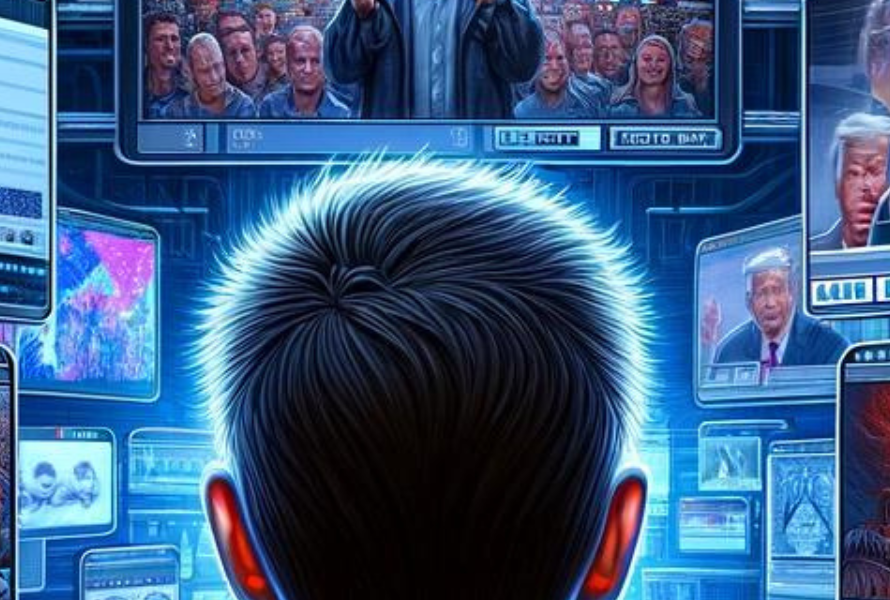Understanding the Legal Framework Around Ticket Scalping in India
by By Ritisha Mukherjee, Senior Associate and Shrija Verma, Associate.
TICKET SCALPING IN INDIA
Ticket scalping, also referred to as “ticket touting” or “black marketing” may be said to occur inter alia when individuals or groups purchase tickets for popular events and resell them at inflated prices to make a profit. This practice exploits the high demand for certain events/content, such as sporting matches, concerts, or festivals, often by portraying an artificial scarcity. In India, ticket scalping has been seen to primarily affect events that draw large crowds, including cricket matches especially Indian Premier League matches, Bollywood movie releases, religious festivals and music concerts. In recent times, ticket scalping during Coldplay’s upcoming India tour has sparked significant outrage and concern amongst fans and authorities alike. Tickets for Coldplay’s concerts, scheduled for January 2025 in Mumbai, got sold out in minutes, leaving many fans empty-handed despite waiting in the queue for hours. The overwhelming demand caused the BookMyShow platform to crash, with over a million people queued for only 50,000 available tickets per show. This created a fertile ground for ticket scalpers to exploit the situation. Following the sale of tickets on the platform of BookMyShow, the official ticket seller, many third-party platforms began reselling tickets at inflated prices. For instance, tickets originally priced at ₹12,500 were being listed on third-party sites for amounts as high as ₹7,07,000. Besides facing backlash from the public at large, reselling websites such as Viagogo and Gigsberg have been identified by BookMyShow as unauthorized sellers with whom BookMyShow had no official association. Furthermore, BookMyShow has also filed a police complaint against third-party unauthorized sellers. Further, companies like Snitch[1], Spreeh[2], UrbanMatch[3], WYLD[4] and FinderBridge[5] started offering the tickets as giveaways on social media platforms such as Instagram as a means to market their brand and gain followers and reach by asking fans to comment, tag, share the company’s post on their story, without giving any guarantee or proof of the legality, if any, of the tickets that they are giving away. The bulk buying of tickets by resellers, and the inability to curb these practices effectively, led to a massive increase in resale activity, exploiting genuine fans. Interestingly, action has also been taken against BookMyShow and Live Nation by a Mumbai-based lawyer vide a formal criminal complaint with the Economic Offences Wing in Mumbai, where the complainant accused BookMyShow for having resorted to unethical ticket-selling practices and manipulation of access to tickets, inter alia by way of logging out legitimate users or blocking them, thereby engaging in ticket-scamming of the Coldplay concert and permitting ticket bots and black-market operators to make bulk purchase of the tickets. The complainant also intends to register an FIR under various provisions of The Bhartiya Nyaya Sanhita, 2023 and file a public interest litigation before the Bombay High Court to seek establishment of regulatory guidelines for management of major public events in future. In the recent past, Diljit Dosanjh’s Dil-Luminati tour encountered legal issues after a Delhi-based law student issued a legal notice to the concert organizers accusing them of unfair trade practices, alleging that pre-sale tickets for the Delhi show were sold out within minutes due to an early release, before the announced time of 1 PM. The notice claimed that the act denied many fans a fair chance to purchase tickets, despite following all requirements such as for early access. Due to the increase in demand, resale of tickets took place on websites like Viagogo, in turn causing Zomato live, Zomato’s ticket selling platform to send a legal notice to Viagogo and other secondary ticket-selling platforms. It is pertinent to note that Zomato was the official ticket-selling partner for Diljit Dosanjh’s concert[6].Statutory Provisions Governing Ticket Scalping in India
Ticket scalping in India falls in a gray area since there are no central legislations or legal frameworks to specifically address scalping, however some legal provisions address the issue indirectly. The aforementioned Coldplay ticket scalping can be adjudged under the following provision of law indirectly:Central Laws:
- The Bhartiya Nyaya Sanhita, 2023 (“BNS”)
- Section 316: Criminal Breach of Trust “316. (1) Whoever, being in any manner entrusted with property, or with any dominion over property, dishonestly misappropriates or converts to his own use that property, or dishonestly uses or disposes of that property in violation of any direction of law prescribing the mode in which such trust is to be discharged, or of any legal contract, express or implied, which he has made touching the discharge of such trust, or willfully suffers any other person so to do, commits criminal breach of trust.” Criminal breach of trust refers to the fraudulent appropriation of one’s property by another to whom it has been entrusted, or into whose hands it has lawfully come. This section would become applicable to scalping if the official ticket selling platform mentions in the terms and conditions of the tickets that the ticket shall be non-transferable or re-sellable, in violation of which an individual or organization entrusted with the sale or distribution of tickets misappropriates them for personal gain inter alia by selling them at inflated prices in the black market or making unauthorized re-sale. Therefore, in the current circumstances, the primary buyers may be deemed to be in criminal breach of trust of BookMyShow subject to the terms and conditions of the tickets provided by the platform.
- Section 61: Criminal Conspiracy “61. (1) When two or more persons agree with the common object to do, or cause to be done–– (a) an illegal act; or (b) an act which is not illegal by illegal means, such an agreement is designated a criminal conspiracy: Provided that no agreement except an agreement to commit an offence shall amount to a criminal conspiracy unless some act besides the agreement is done by one or more parties to such agreement in pursuance thereof” Section 61 of the BNS deals with “criminal conspiracy,” which is highly relevant when scalping is conducted by organized groups or networks. In many instances, ticket scalping is not just an isolated act by an individual but involves a larger operation where multiple people conspire to purchase and resell tickets at inflated prices.While the act of individuals coming together to buy tickets to enjoy an event in good faith is not illegal per se, section 61 (1) (b) becomes significant when scalpers form a group or organization with the common intent of profiting through scalping. Although purchasing tickets in bulk is not illegal, the use of multiple accounts, fake identities, or other deceptive methods with an intent to bypass rules can be considered an illegal act. It is this deception and fraud that transforms what could otherwise be legal conduct into a criminal conspiracy under Section 61 of the BNS.
- Consumer Protection Act, 2019 and E-Commerce Rules, 2024: The Act aims to protect consumers from unfair trade practices, including deceptive marketing tactics. Scalping can be viewed as a form of unfair practice, as it denies consumers the ability to access tickets at face value. Unfair trade practices in the present case falls under Clause 47(v) of the Consumer Protection Act, 2019 as:“(47) “unfair trade practice” means a trade practice which, for the purpose of promoting the sale, use or supply of any goods or for the provision of any service, adopts any unfair method or unfair or deceptive practice including any of the following practices, namely:—(v) permitting the hoarding or destruction of goods, or refusal to sell the goods or to make them available for sale or to provide any service, if such hoarding or destruction or refusal raises or tends to raise or is intended to raise, the cost of those or other similar goods or services;” It is pertinent to understand that the tickets for Coldplay that went live were hoarded by several entities with an objective to re-sell such tickets at a relatively higher price amounting to an unfair trade practice. Consumer Protection (E-Commerce) Rules, 2020 prohibits adoption of any unfair trade practices by an e-commerce website or by a seller on marketplace whether in the course of business on its platform or otherwise under Rules 4 and 6, stating that “4 (3) No e-commerce entity shall adopt any unfair trade practice, whether in the course of business on its platform or otherwise.” “Rule 6. Duties of sellers on marketplace. – (1) No seller offering goods or services through a marketplace e-commerce entity shall adopt any unfair trade practice whether in the course of the offer on the e-commerce entity’s platform or otherwise.” Rule 4 (11) further goes on clarify which acts would further amount to unfair trade practices: “Rule 4 (11) : No e-commerce entity shall— manipulate the price of the goods or services offered on its platform in such a manner as to gain unreasonable profit by imposing on consumers any unjustified price having regard to the prevailing market conditions, the essential nature of the good or service, any extraordinary circumstances under which the good or service is offered, and any other relevant consideration in determining whether the price charged is justified;” In the present scenario, several third-party websites and platforms like Viagogo have listed tickets originally priced at ₹6,500 for amounts as high as ₹75,000. In such an instance, the sites are not only adopting an unfair trade practice of hoarding tickets for re-selling but also violating the e-commerce rules by manipulating prices of the tickets to gain an unreasonable profit. When an unfair trade practice is carried out, the E-Commerce Rules empower the Central Authority under the Consumer Protection Act, 2019 to take decisive action. Upon investigation, if sufficient evidence is found to show a violation of consumer rights or engagement in unfair practices, the aforementioned Authority can pass orders under Section 20 (c) of the Consumer Protection Act, 2019, including the discontinuation of such unfair or prejudicial practices. If the defaulting entity fails to comply with the Authority’s directions, Section 88 of the Consumer Protection Act, 2019 imposes penalties, which may include imprisonment for up to six months, a fine up to twenty lakh rupees, or both. When unfair practices like ticket scalping occur, legal steps can include arresting the offenders, imposing fines, or cancelling scalped tickets. During the IPL in April 2024, twelve individuals were arrested in Chennai by the police for illegal sale of tickets for a match between Chennai Super Kings and Lucknow Super Giants[7]. The police seized 56 tickets worth ₹1.4 lakh during their surveillance operation around MA Chidambaram Stadium, cracking down on the illegal activity[8].
State Laws:
While central laws in India do not have any provisions addressing the illegality of ticket scalping directly, some state laws have enacted their own regulations aiming at preventing such practices. These state provisions are often designed to protect consumers from exploitation and ensure fair access to event tickets, addressing the intent and purpose behind curbing unfair trade practices like ticket reselling at inflated prices.- The Rajasthan Entertainments and Advertisements Tax, 1957 The Rajasthan Entertainments and Advertisements Tax, 1957 explicitly prohibits the re-selling of tickets for admission to an entertainment under section 10 thereof.“10. Offences and penalties.-
-
- Notwithstanding anything contained in any law for the time being in force, a ticket for admission to an entertainment shall not be resold for profit by the holder thereof.
- Whoever resells any ticket for admission in contravention of the provisions of sub-section (1) shall, on conviction before a Magistrate, be liable to pay fine which may extend to two hundred rupees.” Apart from the aforementioned, a general idea of ticket scalping also gets addressed under the following legal provisions indirectly:
- Other Provisions:
- Bhartiya Nyaya Sanhita Section 318: Cheating. “318. (1) Whoever, by deceiving any person, fraudulently or dishonestly induces the person so deceived to deliver any property to any person, or to consent that any person shall retain any property, or intentionally induces the person so deceived to do or omit to do anything which he would not do or omit if he were not so deceived, and which act or omission causes or is likely to cause damage or harm to that person in body, mind, reputation or property, is said to cheat. (2) Whoever cheats shall be punished with imprisonment of either description for a term which may extend to three years, or with fine, or with both. (3) Whoever cheats with the knowledge that he is likely thereby to cause wrongful loss to a person whose interest in the transaction to which the cheating relates, he was bound, either by law, or by a legal contract, to protect, shall be punished with imprisonment of either description for a term which may extend to five years, or with fine, or with both. (4) Whoever cheats and thereby dishonestly induces the person deceived to deliver any property to any person, or to make, alter or destroy the whole or any part of a valuable security, or anything which is signed or sealed, and which is capable of being converted into a valuable security, shall be punished with imprisonment of either description for a term which may extend to seven years, and shall also be liable to fine.”
- (i) Bhartiya Nyaya Sanhita Section 319: Cheating by personification and (ii) The Information Technology Act, 2000 (“IT Act”) Section 66D : Punishment for Cheating by Personation By Using Computer Resourc“319 (1), BNS – A person is said to cheat by personation if he cheats by pretending to be some other person, or by knowingly substituting one person for or another, or representing that he or any other person is a person other than he or such other person really is. (2) Whoever cheats by personation shall be punished with imprisonment of either description for a term which may extend to five years, or with fine, or with both”. “66D, IT Act – Whoever, by means of any communication device or computer resource cheats by personation, shall be punished with imprisonment of either description for a term which may extend to three years and shall also be liable to fine which may extend to one lakh rupees.” These provisions may be invoked when unauthorized ticket sellers, scalpers or fraudsters, in their personal capacity or through any communication device/computer resource, assume a false identity or use fake credentials to deceive buyers or ticketing platforms.
-



